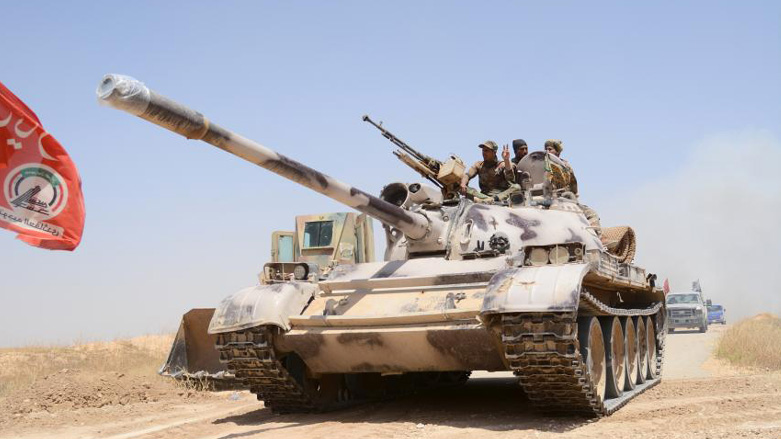US lacks policy to contain Tehran

ERBIL, Kurdistan Region (Kurdistan 24) – As the world witnesses the final moments of the Islamic State’s (IS) caliphate, the real winners in the region seem to be Iran and its allies rather than the US.
US Congressmen; the leadership of the Kurdistan Region, which is allied with the West; many regional experts; and – most recently – the Arab League complain that Tehran’s influence is growing. Many fear its interference in Iraq, Syria, and Lebanon will only lead to greater instability in the region.
Iran seems to have established a strong presence stretching from the Shia bastions of Iraq to Lebanon. Iranian-backed militias boast openly that they have achieved this crucial objective.
In a BBC report on Monday from al-Bukamal—a Syrian town lying at a key border junction with Iraq and which was recently liberated from IS by a combination of Syrian forces and pro-Iranian militias—the Iraqi commander of an Iranian-backed Shia force asserted that Tehran’s objective of securing a bridge to the Mediterranean had been achieved.
“Call it what you want: A Shia area, a Shia crescent, an area of Iranian influence. This is the situation now. It's already in place,” said Kasim Muslih, a commander with the Iraqi Popular Mobilization Forces (PMF), operating in conjunction with Syrian regime forces.
Shia flags now fly over areas once held by IS, according to the BBC, marking the land route the Iranian-backed militias such as the Lebanese Hezbollah and the Iraqi Hashd al-Shaabi have carved out through Iraq and Syria.
Nearly 50 Congressmen wrote Secretary of State Rex Tillerson last week expressing their concerns about the military presence that Iran has established in Syria in the course of the country’s protracted civil war.
During the 9th Halifax International Security Forum in Canada, Head of the Kurdistan Region’s Department of Foreign Relations Falah Mustafa Bakir raised alarm bells about the specter of Iranian interference in regional politics.
“Tehran wants to become a regional superpower. Iran is the most influential country in Iraq today,” he said, noting that it had attacked western interests when it assaulted the Kurdistan Region, using its network of Iranian-supported Shia militias.
On Oct. 16, Iraqi forces alongside the Hashd al-Shaabi, in an operation orchestrated by Qassem Soleimani, head of the Quds Force of Iran’s Islamic Revolutionary Guard Corps (IRGC), attacked Kirkuk and other disputed territories. US spokesmen claimed to have no knowledge of Soleimani’s role or that of the Shia militias—although the head of the CIA subsequently confirmed both.
Last month, the Trump administration announced a tough, new policy to contain Iran. However, actions to match the rhetoric seem to be woefully lacking.
Editing by Laurie Mylroie
